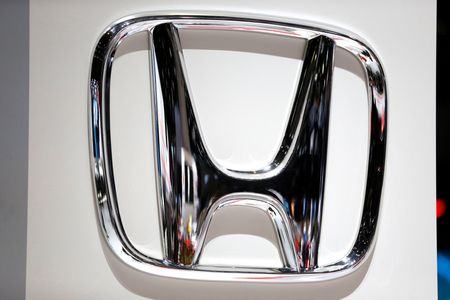 1
1 1
1
By Daniel Leussink
TOKYO (Reuters) -Japan’s Honda Motor Co said on Wednesday it had struck a strategic collaboration agreement with Taiwan Semiconductor Manufacturing Co (TSMC) as part of efforts to secure a stable supply of semiconductors.
Japanese automakers have struggled to completely shake off the hit from tight global chip and parts supply during the pandemic, though constraints have eased.
Honda will build direct relationships with chip producers for the long-term stable supply of chips, Chief Executive Toshihiro Mibe said at a news conference where he gave an update about the automaker’s business strategy.
“Honda will work closely together with Tier 1 suppliers and semiconductor makers and move forward with drastic steps,” Mibe said, adding it had reached a basic agreement on strategic collaboration with TSMC.
“In the past, there were probably almost no direct discussions between automakers, including Honda, and semiconductor manufacturers,” he said.
The company expected to start seeing an impact from the tie-up with TSMC from the 2025 financial year, Chief Operating Officer Shinji Aoyama said.
The deal included sharing information about production and parts supply with a focus on securing integrated circuits and other parts, he said.
TSMC said in an emailed statement it was committed to serving as its customers “trusted long-term technology and capacity supplier to unleash their innovations”.
“TSMC continues to work closely with major worldwide automobile IC companies to support their success,” it added, without elaborating.
Honda also said it planned to release a mid- to large-size electric vehicle (EV) model in the United States in 2025 built with the company’s new “electric and electronic” architecture platform.
It stuck to its aim of making EVs and fuel cells represent 100% of its vehicle sales by 2040, and said it planned to introduce four new EV models in Japan by 2026.
The company is considering boosting revenue from EVs by charging for software and digital services, Mibe said.
“I don’t think things are as simple as they used to be where we can just increase the number of units to grow profits,” said Mibe, without giving further details.
(Reporting by Daniel Leussink; Additional reporting by Satoshi Sugiyama, and Ben Blanchard in Taipei; Editing by Muralikumar Anantharaman, Stephen Coates and Louise Heavens)